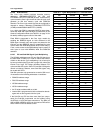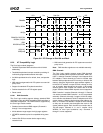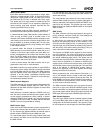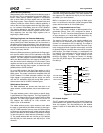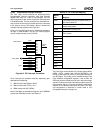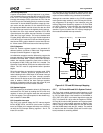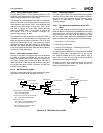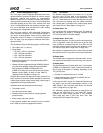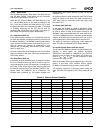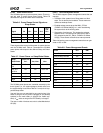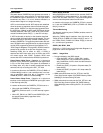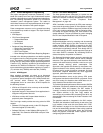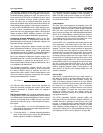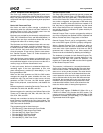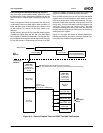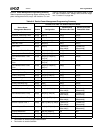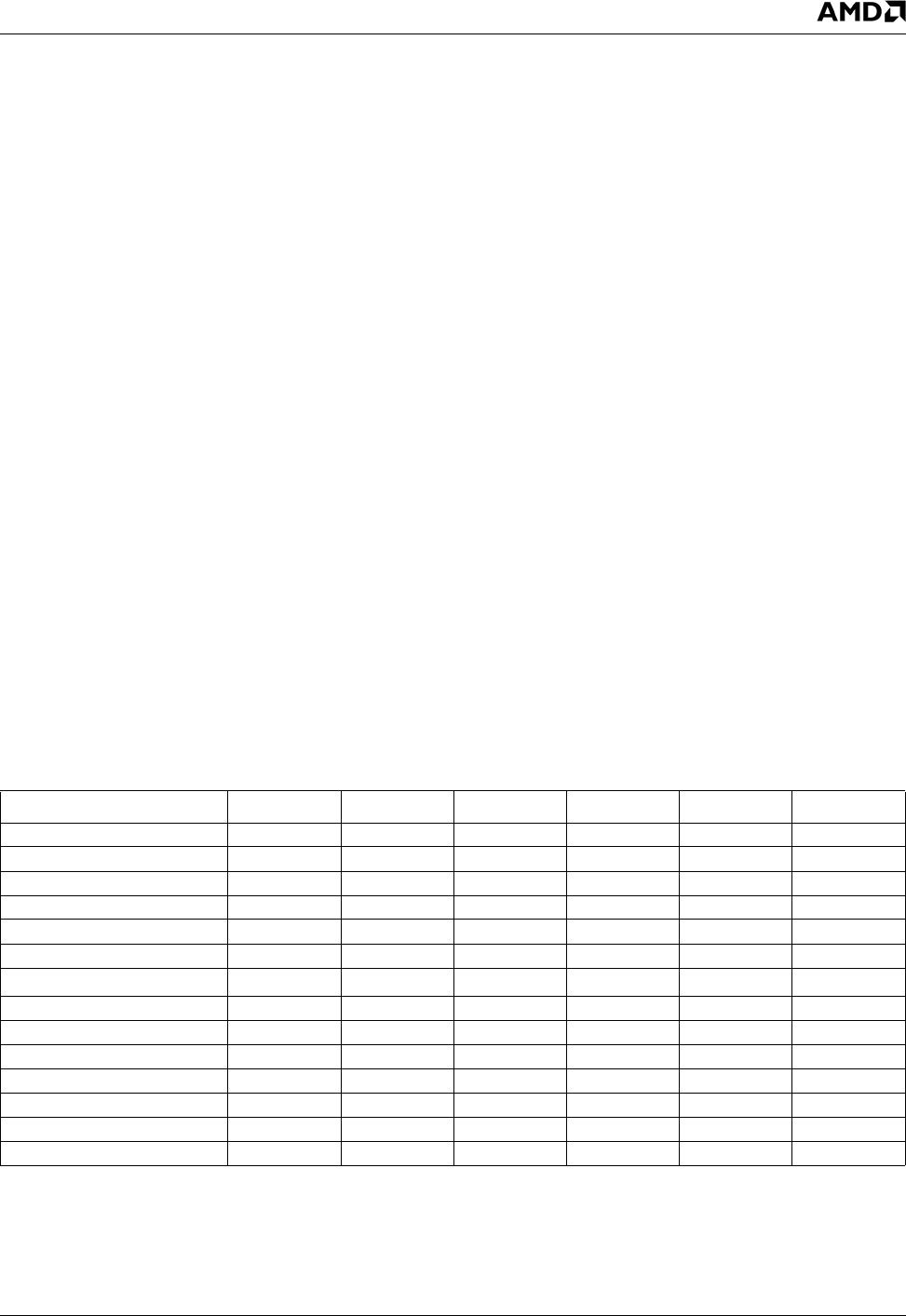
AMD Geode™ SC3200 Processor Data Book 157
Core Logic Module
32581C
6.2.9.2 Sleep States
The SC3200 supports four Sleep states (SL1-SL3) and the
Soft Off state (G2/S5). These states are fully compliant
with the ACPI specification, revision 1.0.
When the SLP_EN bit (F1BAR1+I/O Offset 0Ch[13]) is set
to 1, the SC3200 enters an SLx state according to the
SLP_TYPx field (F1BAR1+I/O Offset 0Ch[12:10]). It exits
the Sleep state back to the S0 state (C0 state - Full Speed
or Throttling, depending on the THT_EN bit) upon an
enabled power management event. Table 6-5 on page 157
lists wakeup events from the various Sleep states.
SL1 Sleep State (ACPI S1)
In this state the core processor is in 3V Suspend mode (all
its clocks are stopped, including the memory controller and
the display controller). The SDRAM is placed in self-refresh
mode. All other SC3200 system clocks and PLLs are run-
ning. All devices are powered up (PWRCNT[2:1] and
ONCTL# are all asserted). See Section 6.2.9.5 "Usage
Hints" on page 159.
No reset is performed, when exiting this state. The SC3200
keeps all context in this state. This state corresponds to
ACPI Sleep state S1.
SL2 Sleep State (ACPI S1)
In this state, all of the SC3200 clocks are stopped including
the PLLs. Selected clocks from the PLLs can be kept run-
ning under program control (F0 Index 60h). An exception to
this is the CLK32 output signal which keeps toggling and
the 32 KHz oscillator itself. The SDRAM is placed in self-
refresh mode. The PWRCNT1 pin is de-asserted. The
SC3200 itself is powered up. The system designer can
decide which other system devices to power off with the
PWRCNT1 pin.
No reset is performed, when exiting this state. The SC3200
keeps all context in this state. This state corresponds to
ACPI sleep state S1, with lower power and longer wake
time than in SL1.
SL3 Sleep State (ACPI S3)
In this state, the SDRAM is placed in self-refresh mode,
and PWRCNT[2:1] are de-asserted. PWRCNT[2:1] should
be used to power off most of the system (except for the
SDRAM). If the Save-to-RAM feature is used, external cir-
cuitry in the SDRAM interface is required to guarantee data
integrity. All SC3200 signals powered by V
SB
, V
SBL
or V
BAT
are still functional to allow wakeup and to keep the RTC.
The power-up sequence is performed, when exiting this
state. This state corresponds to ACPI Sleep state S3.
SL4 and SL5 Sleep States (ACPI S4 and S5)
The SL4 and SL5 states are similar from the hardware per-
spective. In these states, the SC3200 de-asserts
PWRCNT[2:1] and ONCTL#. PWRCNT[2:1] and ONCTL#
should be used to power off the system. All signals pow-
ered by V
SB
, V
SBL
or V
BAT
are still functional to allow
wakeup and to keep the RTC.
While in this state, LED# can be toggled to give visual noti-
fication of this state. ACPI Function Control register
(F1BAR1+I/O Offset 07h[7:6]) is used to control LED#.
The power-up sequence is performed when exiting this
state. This state corresponds to ACPI Sleep states S4 and
S5.
Table 6-5. Wakeup Events Capability
Event S0/C1 S0/C3 SL1 SL2 SL3 SL4, SL5
Enabled Interrupts Yes Yes Yes - - -
SMI according to Table 6-8 Yes Yes Yes - - -
SCI according to Table 6-8 Yes Yes Yes - - -
GPIO[47:32], GPIO[15:0] Yes Yes Yes - - -
Power Button Yes Yes Yes Yes Yes Yes
Power Button Override Yes Yes Yes Yes Yes Yes
Bus Master Request
Ye s
1
YesYes---
Thermal Monitoring Yes Yes Yes Yes Yes Yes
USB Yes Yes Yes Yes - -
SDATA_IN2 (AC97) Yes Yes Yes Yes - -
IRRX1 (Infrared) Yes Yes Yes Yes - -
GPWIO[2:0] Yes Yes Yes Yes Yes Yes
RI2# (UART2) Yes Yes Yes Yes - -
RTC Yes Yes Yes Yes Yes Yes
1. Temporarily exits state.



